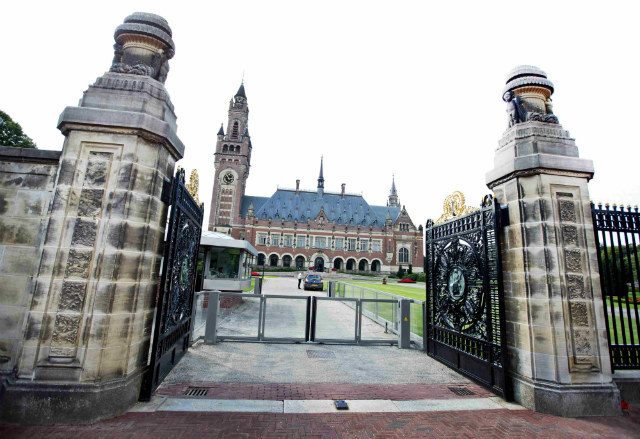SUMMARY
This is AI generated summarization, which may have errors. For context, always refer to the full article.

MANILA, Philippines – The Philippines on Thursday, June 30, stressed that China “is bound” by the upcoming ruling by a tribunal in The Hague, Netherlands, on a historic case over the West Philippine Sea (South China Sea).
The Philippine Department of Foreign Affairs (DFA) said that despite China’s “non-appearance” in the arbitral proceedings initiated by the Philippines, “China is and remains a Party to the arbitration and is bound under international law by an Award rendered by the Tribunal.”
Experts say that while there is no international police to enforce the tribunal’s ruling, China runs the risk of being viewed as an “international outlaw” if it defies the court.
The Philippines, for its part, said it “will fully respect” the ruling that the tribunal will hand down on July 12.
In a statement, the DFA explained that the ruling will affirm the so-called Constitution for the Oceans, or the United Nations Convention on the Law of the Sea (UNCLOS).
“The Philippines believes that the rule of law prescribes a just and peaceful means of resolving differences, which is why the Philippines will fully respect the Tribunal’s Award as an affirmation of the UNCLOS and hopes that members of the international community and Parties to the Convention will do the same,” the DFA said.
The DFA issued this statement after the PCA on Wednesday evening, June 29, confirmed that it will issue its ruling on the Philippines’ case against China on July 12.
In these arbitration proceedings, the Philippines seeks to nullify China’s expansive claim over practically the whole South China Sea, parts of which the Philippines claims as the West Philippine Sea.
Timeline of Philippines’ case
In its statement, the DFA recounted the following facts in the Philippines’ case:
- The Philippines filed an arbitration case against China on January 22, 2013, to settle its dispute with the Asian giant over the West Philippine Sea (South China Sea). The Philippines invited China to join the proceedings.
- The Philippines submitted a pleading or memorial on March 20, 2014. The tribunal requested China to submit a counter-memorial, but China rejected this request. China, however, issued a position paper on December 7, 2014. The tribunal considered China’s position paper, along with “certain communications from China,” as “a plea.” The tribunal then requested the Philippines to submit “further written arguments” in March 2015.
- From July 7 to 13, the tribunal heard the Philippines’ oral arguments on whether the tribunal has the right to hear its case against China. During these hearings, “all Chinese arguments on jurisdiction and admissibility…were properly considered.”
- On October 29, 2015, the tribunal ruled that it has the right to hear the Philippines’ case. It also “held that China’s decision not to participate in these hearings does not deprive the Tribunal of jurisdiction and that the Philippines’ decision to commence arbitration unilaterally was not an abuse of the Convention’s dispute settlement procedures.”
- Then, from November 24 to 30, 2015, the tribunal conducted a hearing on the merits of the Philippines’ case. The tribunal gave the Philippines and China until December 9, 2015, “to review and submit corrections to the transcript of the hearing.” It also allowed China to comment in writing by January 1, 2016, “on anything said during the meeting or submitted in writing by the Philippines.”
- The tribunal “entered deliberations soon after, stating its intention to issue the Award in 2016.”
China, for its part, said it will reject any ruling by the tribunal in the case filed by the Philippines.
“With regard to territorial issues and maritime delimitation disputes, China does not accept any means of third party dispute settlement or any solution imposed on China,” Chinese Foreign Ministry spokesman Hong Lei said in a statement Wednesday.
The tribunal was “established on the basis of illegal conduct and claims of the Philippines” and “has no jurisdiction over the relevant matters,” he said.
Hong said: “I hereby once again emphasize that the Arbitral Tribunal has no jurisdiction over the case and the relevant subject matter, and that it should not have heard the case.” – with reports from Agence France-Presse/Rappler.com
Add a comment
How does this make you feel?
There are no comments yet. Add your comment to start the conversation.